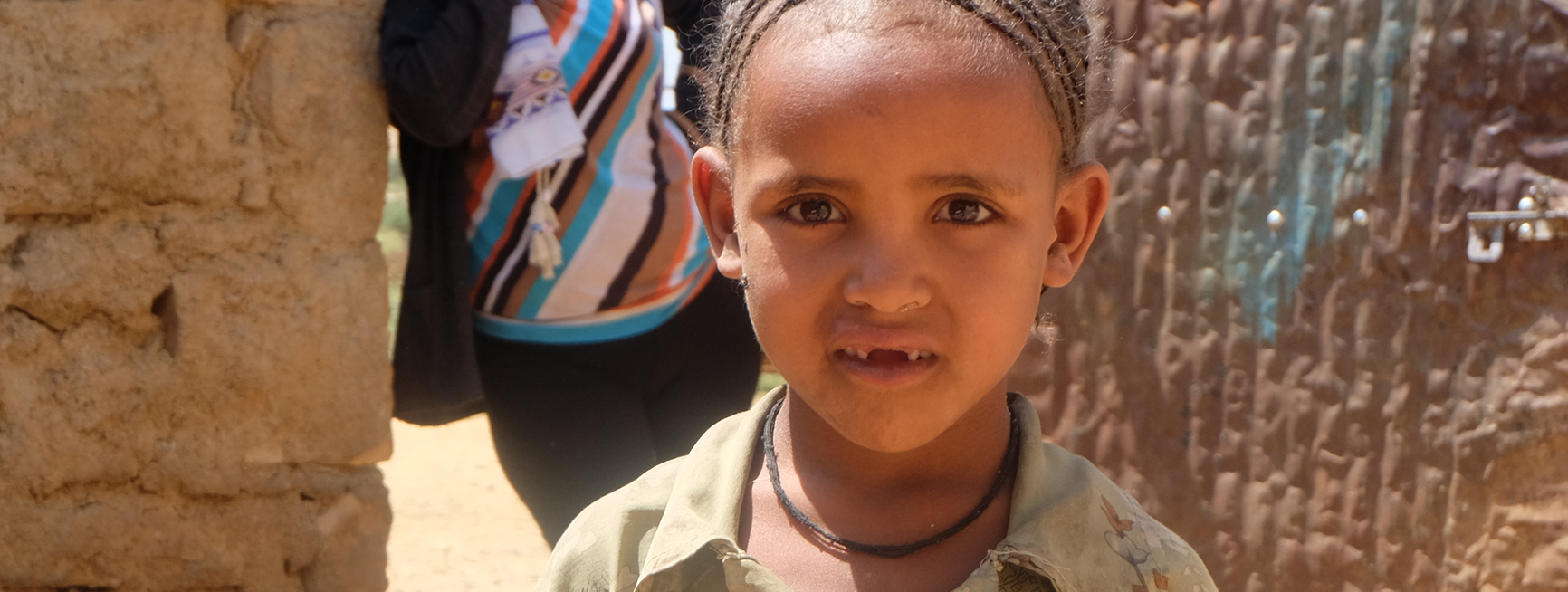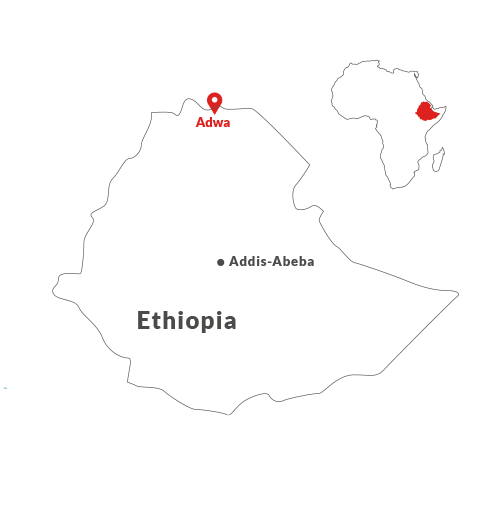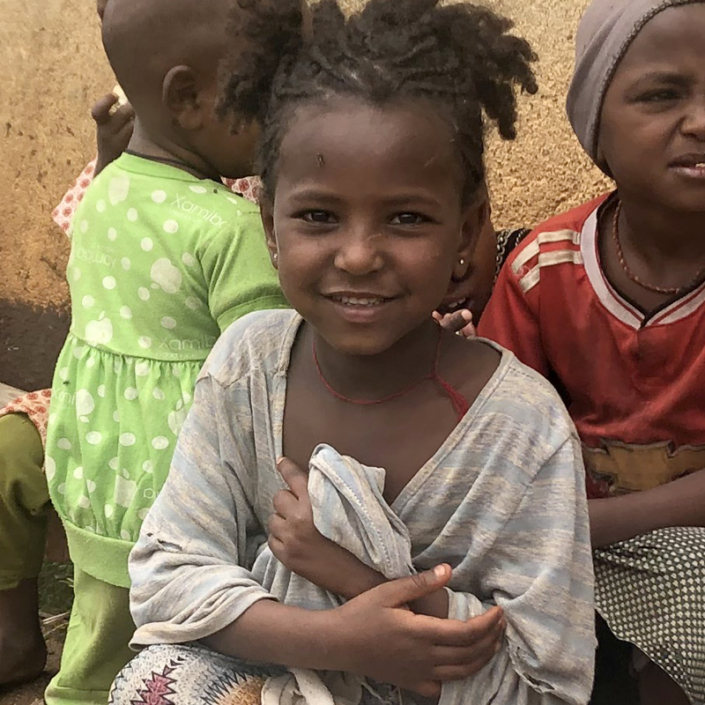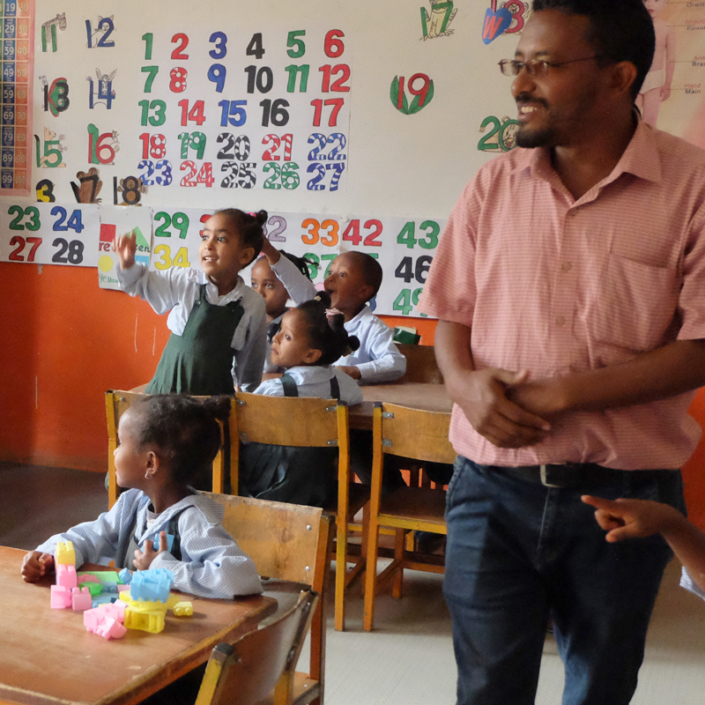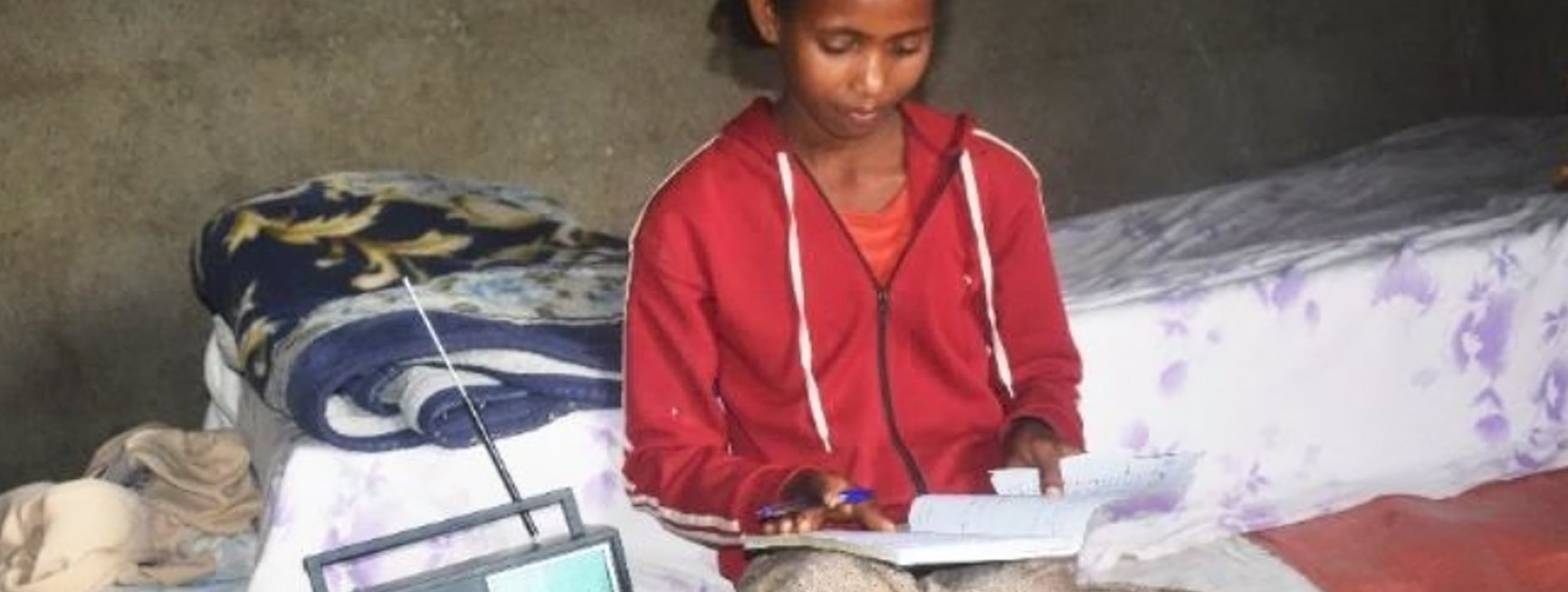SOS Children’s Village Adwa
Ethiopia
- Adwa, Ethiopia
- Support for single parents and their children
- Protection and care
- Improvements in revenues
- Education, schooling
- Health
poor parents (fathers and mothers) have received our support since the beginning of the project
children have received support from the SOS Village programme in Adwa since the beginning of the project.
children received school supplies in 2019
teachers have followed in-service training courses in pedagogy and didactics
Adwa is located in northern Ethiopia, directly on the border with Eritrea, a region where many conflicts persist. Many of the soldiers camped at the Adwa military base have families there, which they leave behind when they are displaced. As a result, 74% of all households in Adwa are headed by single women.
Here, women’s rights are not respected and they suffer from paternalism and violence. Despite hard work, these homes barely reach the minimum to survive and are forced to neglect their children. Many of these children have to contribute to the household income through odd jobs, thus missing classes or even dropping out of school altogether. This means that they have little chance of escaping poverty as adults.
The SOS Children’s Villages project consists of supporting these families to enable them to raise their children properly and give them the necessary training to escape poverty. In 2020, it will concern nearly 1500 children (430 single mothers and 70 single fathers).
This project is based on 4 pillars, for a 360° approach.
Protection and care of children: giving the single parent the necessary know-how to meet the needs of children (rights, education, health, fight against abuse and underage marriages, etc.).
Improvement of income: vocational training (agriculture, entrepreneurship, trades such as hairdressing, sewing, carpentry, etc.), supply of equipment needed to improve conditions (agricultural, construction, schooling, etc.).
Education, schooling, to prepare young people for an independent life and give them job-related skills
Health: to enable children to grow and develop normally.
At the end of the first phase of the project (2015-2018), 302 families have successfully completed the programme and no longer need support, thus also enabling their children to prepare and envisage a better future.
Latest News
The situation in the Tigray region remains very unstable (in addition to all the Covid-related problems). The SOS office in Adwa was looted and the staff evacuated. The families in this region who were supported by the family strengthening program of the past years have lost everything again.
This program, which was successful until the last events, was based on solid foundations and should have been handed over to the local partners by the end of 2021. This goal is now on hold. In order not to leave the most vulnerable alone and destitute, the program has been changed to emergency aid (food and hygiene materials, as well as all the basic necessities), with part of the means being diverted to survival.
The closure of schools also interrupted education and vocational training programs. Thus, many activities have been suspended, especially in terms of training parents and encouraging girls (workshops, girls’ club, etc.).
To lessen the impact of the partial suspension of the education and training program, a system of distance learning via solar radio was put in place, allowing children who remained at home to be educated.
Tigiste’s testimony
“My name is Tigiste. I’m 13 years old and I’m in seventh grade. When the school had to close because of the Co-id-19, it was a shock for me. I have always been a good student who worked hard. Now I thought all my hard work was for naught because my family can’t afford a radio or television. So I didn’t see how I could take distance learning. I was discouraged and felt abandoned.
Finally, the SOS Children’s Village team came to us and brought us a solar powered radio. I was incredibly excited and felt like I had been given my future back!
Since we don’t have a table at home, I sit on a bench to study and the radio is next to me. During the school program, I am constantly taking notes. Classes are taught in English and in our language, Tigrinya. The teachers do their best to explain everything well and to make the lessons entertaining. Music is played between classes. So we stay awake and focused on the subject. It’s a shame you can’t ask questions!
During class, I don’t have to help with chores because my mom knows that education is important. After school, I put the solar radio on the roof to charge it. I’m glad we don’t have to buy batteries because we couldn’t afford them. My mother’s income is barely enough for the bare necessities. I am concerned about our living conditions. Fortunately, at least I don’t have to worry about my schooling because I know someone will help me, even if my mom can’t. I want to go to college one day and study medicine. With that, I want to contribute to the betterment of the people around me. When I have enough money, I will buy my mother a better house.”

